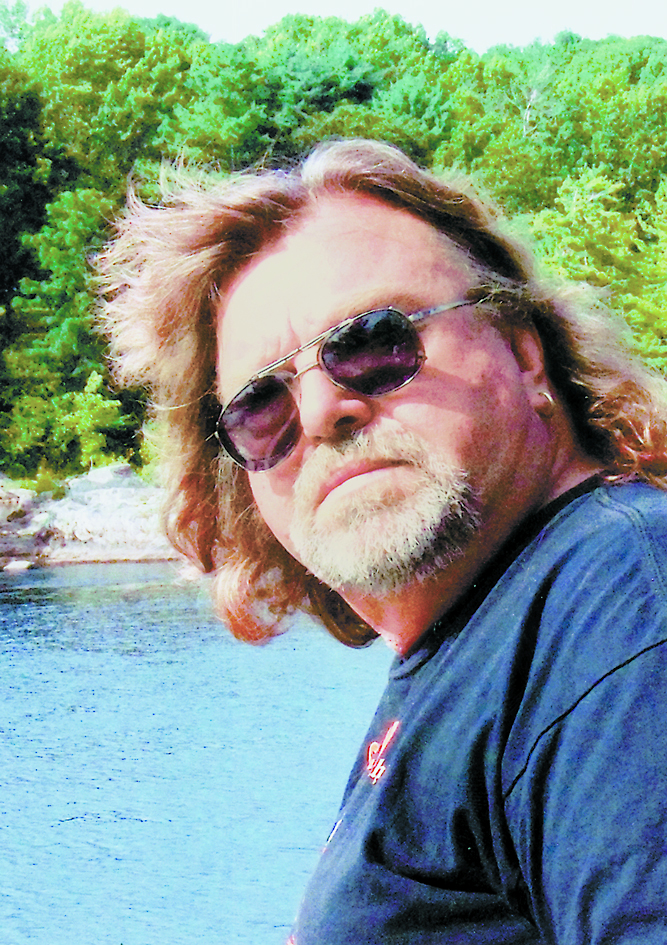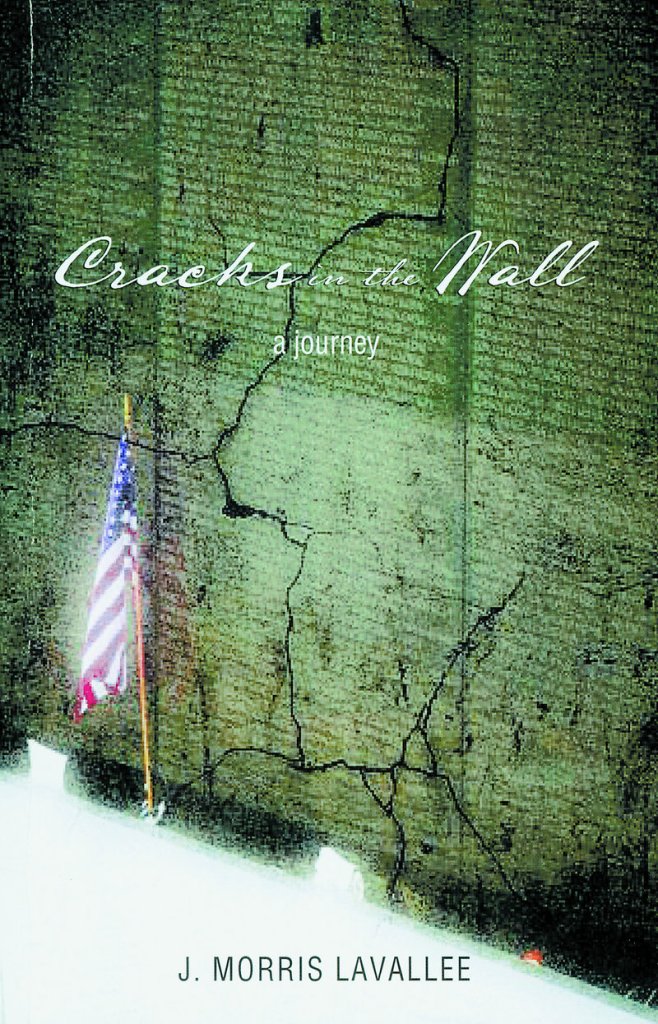With two wars going on and more soldiers serving multiple tours, J. Morris Lavallee of Topsham believes his novel has a lot to say about post- traumatic stress disorder.
“Cracks in the Wall: A Journey” is based on his experiences as a Vietnam-era veteran and things he overheard as a patient in the Togus Veterans Administration Hospital.
The tale begins with a fictional veteran having a breakdown at the Vietnam Veterans Memorial in Washington, D.C., but it also looks to the veteran’s time in the war and, before that, growing up in Bath.
Only 150 copies of the book have been printed thus far, but Lavallee is sending the manuscript to publishers in hopes of getting a wider distribution.
Q: You served in Vietnam. Where and doing what?
A: I served in the Vietnam era, for a very short period of time. The whole crux of the story came about from being in the psychiatric ward at the VA hospital in Togus for PTSD, listening to different servicemen talking, and putting it all in a daily journal.
From there, it took almost 17 years to do the book, sort of a collaboration of different stories I have heard over the years. There is a lot of true experience in there, but it is a novel. And it has a twist at the end of it.
Q: I don’t recall hearing the term “post-traumatic stress disorder” after Vietnam. Those veterans had problems, but I think I first heard the term after the first Gulf War. Was it called that then, and I just wasn’t paying attention?
A: In World War I and II, they called it “shell shock.” I think the first time the (PTSD) term came out was 1977 or 1978, and a lot of the treatment was trial and error. In 1982 or 1983, I had a 30-day in-house treatment program, and they (the hospital staff) were totally clueless. They had no idea what was going on. Now I think they have a better grip on it.
But the stuff that the veterans had to deal with, in service and now day to day back in the world, is just tough. I talked to some Iraq veterans and Gulf War veterans, and they have a lot to deal with as far as PTSD goes. There are so many tensions that build up, and the way things are going on now in the world with people spending three, four or five tours over there, I fear that in the next five or six years, we are going to have a real problem with treatment.
They come back, and they have to be able to talk to someone who has an understanding of how they react, their anger amid the fact of their medical problems. So many have drug and alcohol problems.
Q: So, do you have a problem with how PTSD is treated, how you were treated?
A: I don’t really have a problem with the Veterans Administration. It has changed over the years. They have become more receptive to working with the patients.
I was in and out of civilian hospitals for more than a year, and it was there that I was overmedicated, by the civilian doctors more than the VA doctors. I had a few shots of Thorazine when I was out of control, and I had other issues with alcohol and drugs.
But I have taken the 12-step program, and my life has gotten better. I’ve become addicted to writing, spending eight hours a day at the computer.
Q: So, tell me about the book. This is self-published?
A: I had 150 copies printed, sent out to diverse publishers. That is an insane world to me. I am really looking at getting it published for a wider audience. I am selling some of them for $20 apiece. But I want people’s opinions. I just want to get it into someone’s hands who will get it out to more people.
Q: Are you working on anything new?
A: The next one picks up where this one ends, with the doctor, Prescott Brown, and going from there.
Staff Writer Tom Atwell can be contacted at 791-6362 or at: tatwell@pressherald.com
Send questions/comments to the editors.




Success. Please wait for the page to reload. If the page does not reload within 5 seconds, please refresh the page.
Enter your email and password to access comments.
Hi, to comment on stories you must . This profile is in addition to your subscription and website login.
Already have a commenting profile? .
Invalid username/password.
Please check your email to confirm and complete your registration.
Only subscribers are eligible to post comments. Please subscribe or login first for digital access. Here’s why.
Use the form below to reset your password. When you've submitted your account email, we will send an email with a reset code.